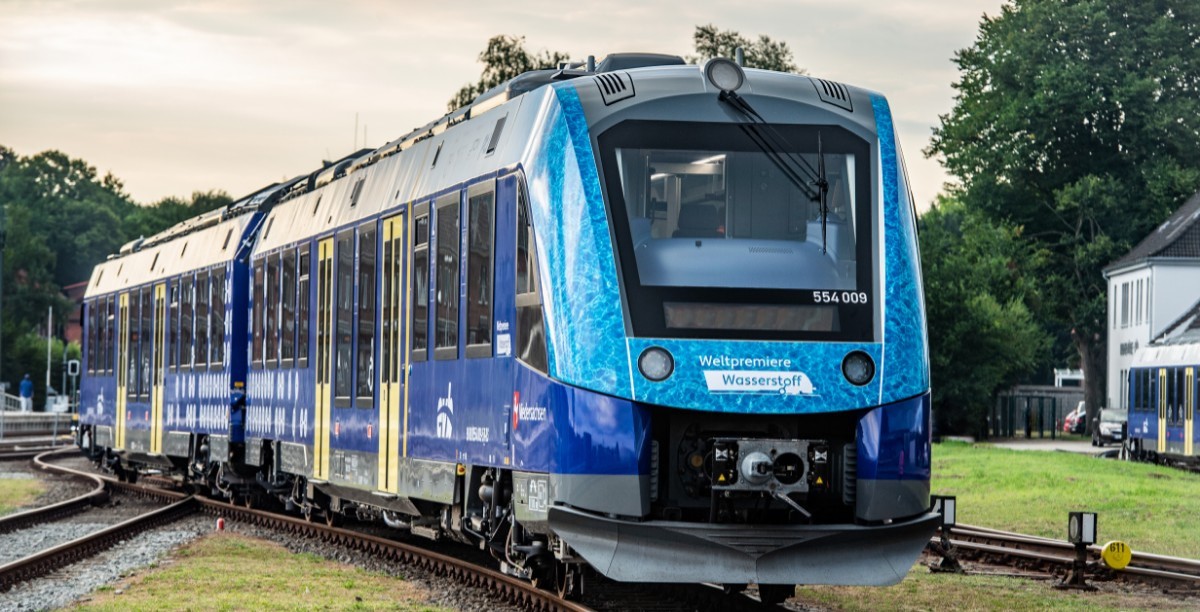 Coradia iLint trains have started passenger operation on world’s first 100% hydrogen rail line in Bremervörde, Lower Saxony, Germany. The 14 vehicles with fuel cell propulsion belong to Landesnahverkehrsgesellschaft Niedersachsen (LNVG).
Coradia iLint trains have started passenger operation on world’s first 100% hydrogen rail line in Bremervörde, Lower Saxony, Germany. The 14 vehicles with fuel cell propulsion belong to Landesnahverkehrsgesellschaft Niedersachsen (LNVG).
The hydrogen rail line connects Cuxhaven, Bremerhaven, Bremervörde and Buxtehude with the Coradia iLint trains being operated by the Elbe-Weser railways and transport company (evb) on behalf of LNVG, which gradually is replacing 15 diesel trains. They will be fuelled daily and around the clock at the Linde hydrogen filling station.
Thanks to a range of 1,000 kilometres, the Alstom multiple units of the Coradia iLint model, which are emission-free in operation, can run all day long on just one tank of hydrogen on the evb network. In September 2018, there had been a successful trial run of almost two years with two pre-series trains.
The Linde facility in Bremervörde contains sixty-four 500-bar high-pressure storage tanks with a total capacity of 1,800 kilograms, six hydrogen compressors and two fuel pumps. The use of hydrogen as a fuel for trains noticeably reduces the burden on the environment, as one kilogram of hydrogen replaces approximately 4.5 litres of diesel fuel. A later hydrogen production on site by means of electrolysis and regeneratively generated electricity is planned; corresponding expansion areas are available.
The project is funded by the Federal Ministry of Digital Affairs and Transport as part of the National Hydrogen and Fuel Cell Technology Innovation Programme. The federal government is contributing EUR 8.4 million to the costs of the vehicles and EUR 4.3 million to the costs of the filling station. The funding directive is coordinated by NOW GmbH and implemented by Project Management Jülich (PtJ).
The Coradia iLint is the world’s first passenger train to run on a hydrogen fuel cell that generates electrical energy for propulsion. This completely emission-free train is quiet and emits only water vapour and condensation. The innovative train features several innovations such as clean energy conversion, flexible energy storage in batteries, and intelligent management of motive power and available energy. Specifically developed for use on non-electrified lines, it enables clean, sustainable train operation while maintaining high performance. On evb’s network, the train travels at speeds of 80 to 120, with a maximum speed of 140 km/h.
LNVG had already started looking for alternatives to diesel trains in 2012 and thus provided momentum for the development of the trains in Germany. Other project partners for this world debut are the Elbe-Weser railways and transport company (evb) and the gas and engineering company Linde.
Share on:



